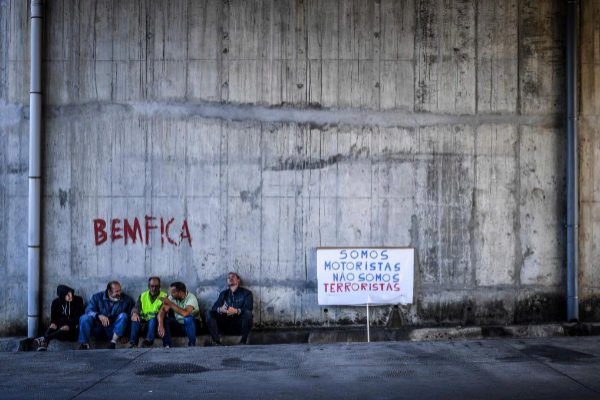This Tuesday marks the second day of the strike of the Portuguese fuel carriers, and the first of the partial civil requisition decreed by the government of the socialist António Costa to prevent chaos in Portugal from unleashing. Failure to comply with the minimum services decreed by the Executive caused long lines at the Portuguese gas stations on Monday, and hundreds of supply stations ended up being completely dry.
Faced with a potentially disastrous situation for the Portuguese economy in the middle of the high tourist season, late on Monday the Executive decreed the civil requisition of the carriers - legal recourse that forces the strikers to go to their jobs or face prison sentences - partially, limiting its application to areas where the agreed supply was not met. For now, the decree covers the infrastructure of the tourist region of the Algarve, the Portuguese airports - among them Humberto Delgado de Lisboa, which yesterday had to ration fuel due to lack of supply -, natural gas units, and posts of the emergency supply network created by the Government within the framework of the state of energy emergency decreed by the Executive and in force until August 21.
Since the decree was published, carriers have complied with the minimum established services, but there are still areas of the neighboring country - especially in the south - where fuel is lacking . Despite this, the Government trusts that it will soon return to a situation of normality within the context of the strike, and is prepared to mobilize the Armed Forces - option contemplated within the legal framework of the civil requisition - in the event that carriers refuse to go to their posts at some future time. On Monday, the Executive mobilized the Republican National Guard and the Public Security Police and commissioned their agents to drive some of the stopped fuel trucks.
While the government's action seems to have slowed down a situation that threatened to cause chaos, it has also been criticized by the main unions of Portuguese workers, who accuse the Socialist Executive of using civil requisition to limit the right to strike. carriers. The Portuguese Communist Party, part of the parliamentary alliance of the Portuguese left known as geringonça , said the measure cut workers' rights.
Pedro Pardal Henriques, spokesman for the Hazardous Materials Transporters' Union, which groups a large part of the strikers, also regretted the Executive's maneuver, stating that "here strikes only exist as and when the Government wants them."
According to the criteria of The Trust Project
Know more- Portugal
- Diesel
FUELS long lines and more than 450 'dry' gas stations at the start of the transporters strike in Portugal
Civil requirement The Portuguese Government threatens strikers with prison sentences if they do not go to their posts
Policy The PSOE gives air to the proposal of IU that we can not enter the Government

